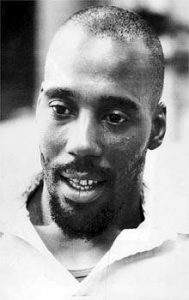Wrongful Convictions
Known instances of wrongful convictions in death penalty cases should lead people to question the morality of the death sentence in a system with a known error rate. The implications of executing a wrongfully convicted person are tragic, due to the finality of the punishment. Multiple incidents of executed or nearly executed individuals who were later exonerated have been reported. One frequently cited example is the near execution of Earl Washington, an intellectually disabled black defendant falsely charged with rape and murder in Virginia. He was put on death row in 1984 and came within nine days of his execution date before a New York firm picked up the case and filed a habeas corpus petition (Earl). He was exonerated in 2000 when DNA testing revealed he did not commit the crime. Some estimates put the rate of wrongful convictions in death penalty cases to be 4.1%, meaning “that approximately 120 of the roughly 3,000 inmates on death row in America might not be guilty” (Drehle). This troubling statistic indicates that the possibility for systematic errors in the trial and sentencing process is too high to justify the practice of executing criminals.

Source: http://www.anusha.com/earlwash.htm
Earl Washington
Race
Myriad statistics show convictions for capital offenses occur disproportionately among racial lines. Eighty percent of capital charges involve a white victim, despite the fact that white people only comprise half of all murder victims (ACLU). The implication is clear: race matters. It matters in terms of who is charged, who receives effective legal counsel, and who is executed. The races of the victim and the defendant are unfortunately implicit factors in the administering of punishment. This is especially true in the South where both racial strife and the death penalty persist. One legal scholar has found that “during the 1980s prosecutors in Georgia sought the death penalty for 70% of black defendants with white victims, but for only 15% of white defendants with black victims” (ACLU). Since prosecutors, who nationwide are 98% white, have discretion in choosing to pursue the death penalty, they may be more aggressive in cases with black defendants due to conscious or unconscious racial bias. As more evidence of the racial factors in sentencing emerge people are beginning to see capital punishment as a tool of mass incarceration and marginalisation of minorities.
Source:https://www.youtube.com/watch?v=zzbPpTU9qZY
Odyssey Networks
The Value of Human Life
The death penalty, which involves the sanctioned killing of a criminal, results in the state’s termination of valuable human life. The fifth amendment of the U.S. Constitution guarantees, among other things, that no person “shall be…deprived of life, liberty, or property, without due process of the law” (Fifth Amendment). Historically, interpretations of this text have said that this is constitutional justification for the death penalty in that so long as someone is given due process they may be deprived of their life. Since the 1976 Supreme Court case that effectively reinstated the death penalty, states have executed 1,264 people (CNN Library). This is a stunning figure considering each of these deaths were authorized through the criminal justice system. Many philosophers have posited the inherent value of human life as a moral good. Immanuel Kant, for example, believed people should “act in such a way that you treat humanity, whether in your own person or in the person of any other, never merely as a means to an end but always at the same time as an end” (Kant). This establishes that life is a moral good in and of itself, rather than a vehicle for other goods. Therefore, any action that offends this moral good or deprives someone of it is a deontic moral bad. It follows that because an inherent feature of the death penalty is the deprivation of valuable human life, deontic arguments render the death penalty unethical.
